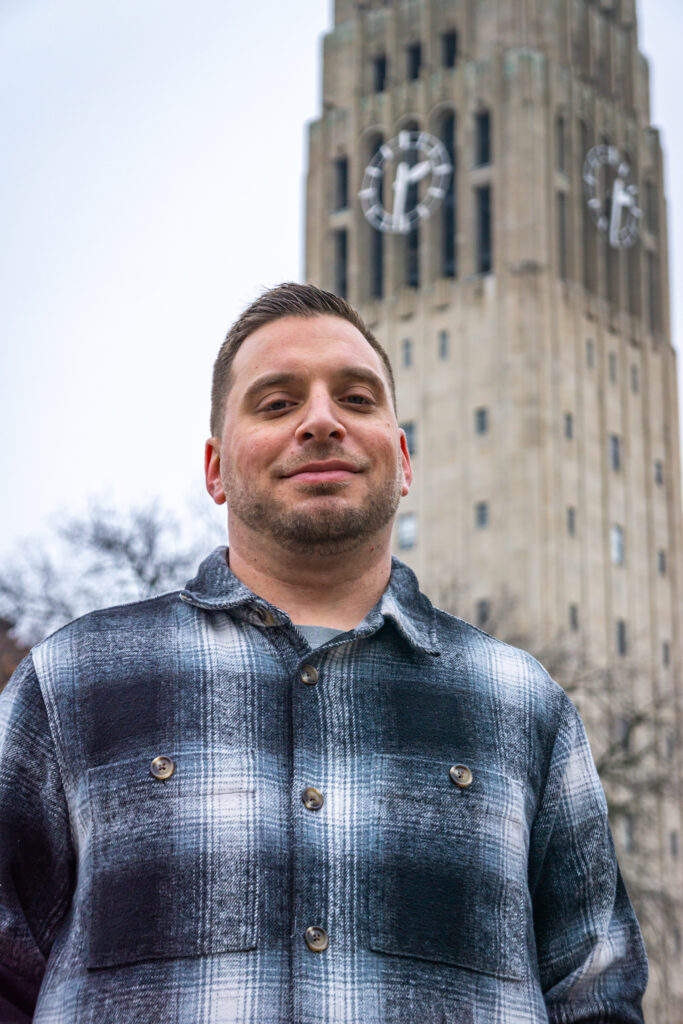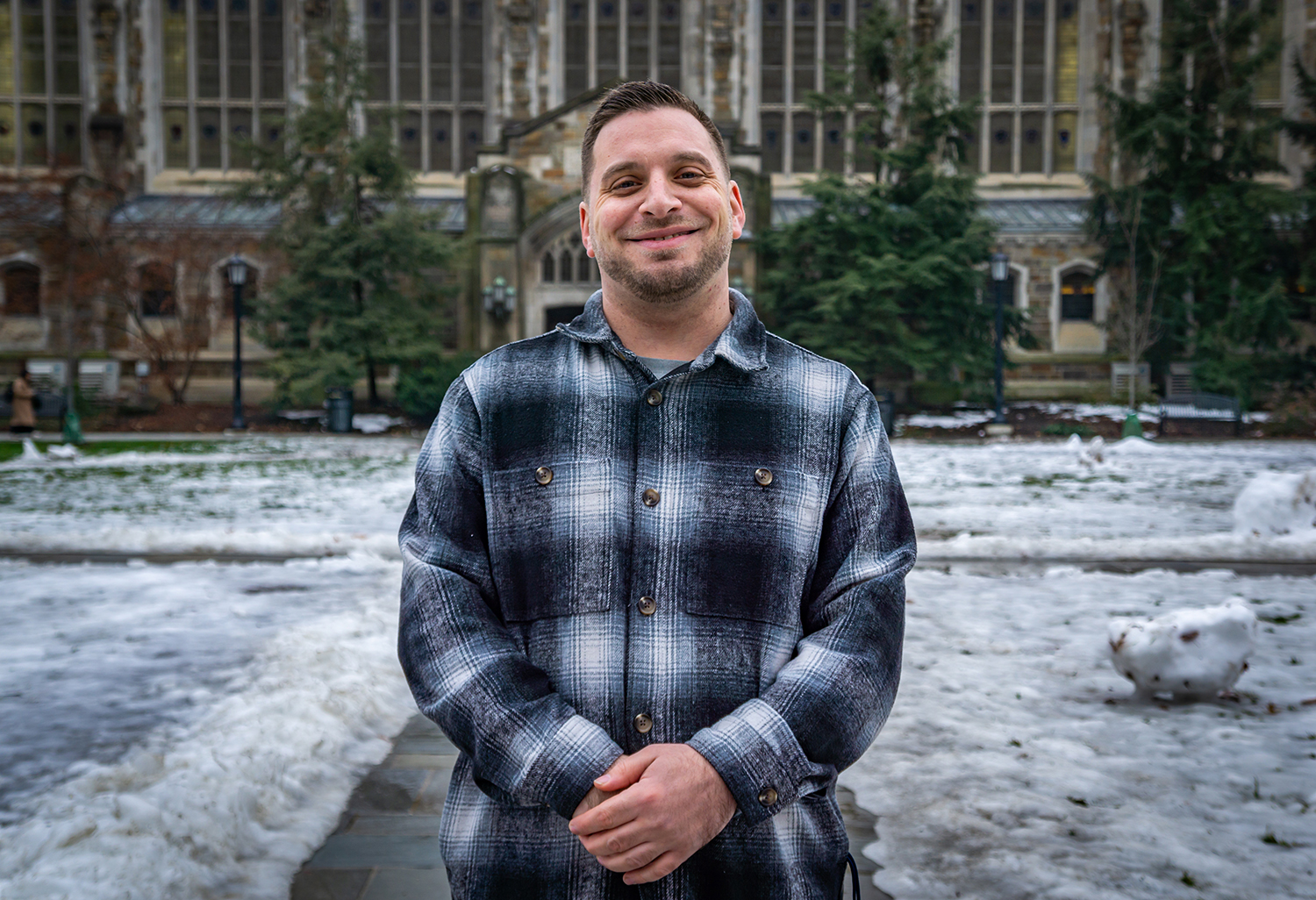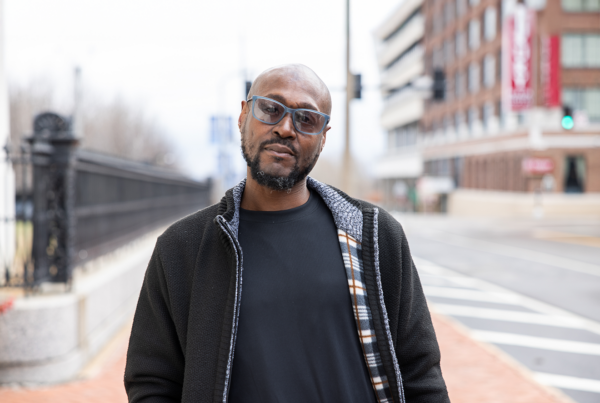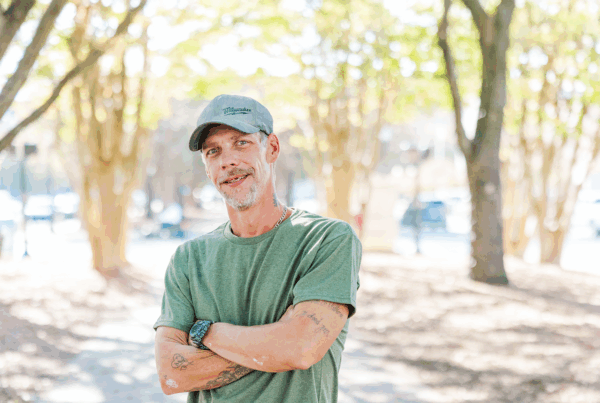When Anthony, 35, appeared in a Washtenaw County court in early 2022, the judge instantly recognized him. She had been his defense attorney on another case several years before. Although that case had been long ago resolved, the judge still remembered him.
Anthony had been in and out of court because he struggled with opioid addiction for nearly two decades. It’s not uncommon for people battling addiction to also end up having legal problems that are caused by or related to their dependency. A study by the National Institutes of Health found that 68% of incarcerated people with substance use disorders surveyed were rearrested within three years of release from prison. Anthony started stealing to support his addiction to opioids. Before long, he was cycling in and out of jail.
Aware of his years-long battle with addiction, the judge offered to transfer Anthony into Washtenaw County’s Drug Treatment Court. The program aims to improve public safety and reduce recidivism rates by providing treatment and recovery support to people who have substance use disorder and are charged with nonviolent crimes. Anthony was reluctant. By this point, he had already resigned himself to the belief that there was no escaping his life of opioid addiction and incarceration. “When I was in that lifestyle it got to a point where I sat back and accepted that this would be my life,” he said.
But Anthony’s judge didn’t give up. She had representatives from the drug court visit him in jail several times. During their visits, they spoke about the services and resources that would be available to him and the recovery community that he would be part of. Anthony agreed to give it a try. “After she kept sending members of the recovery team, I thought I really don’t have a reason not to take a different route,” he recalled. “My life hadn’t gone anywhere this entire time.”
Drug offenses account for some of the most common reasons people are arrested in the United States. According to the Prison Policy Initiative, one in five incarcerated people is locked up for a drug offense. As families like Anthony’s continue to grapple with the effects that opioid addiction has on their communities and loved ones lives, there has been growing momentum for reform. In recent years, a number of jurisdictions across the nation have begun implementing diversion or support programs to help reduce illicit drug use and associated crimes. Such initiatives, like the Drug Treatment Court in Washtenaw County, are rooted in a public health approach. Providing long-term treatment opportunities to justice system-involved people has shown to be one effective way at reducing drug-related crimes and overdoses. Research suggests this is because it not only helps people tackle the underlying causes of their addiction but also supports them in getting their basic needs met – such as transportation, housing, and employment.
“I had to put my pride aside and give my kid the best life possible.”
Anthony was born in Illinois and spent much of his early childhood there. He moved to Michigan with his sister and parents at the start of high school. His teenage years began the way it does for most adolescent boys. He was social and enjoyed playing football and basketball. Before he graduated high school his parents got divorced. Anthony says this led him to start acting out. He became involved in drugs and was partying, which got him into trouble with his parents and school. When he eventually began to steal to support his addiction, he got in trouble with law enforcement and his legal problems began. He left Michigan for some time and later returned, but his lifestyle remained the same. Eventually he started using harder drugs and opioids. By this point Anthony was now a father. His partner was also struggling with opioid addiction. Together they struggled to raise their young son so they decided it would be best to have his partner’s parents raise their kid. “It was a hard pill to swallow because, at first, when I thought about it, I felt like it was admitting failure,” he said. “But I had to put my pride aside and give my kid the best life possible.”
For years, Anthony fought to overcome his addiction. One of the major obstacles he faced was finding meaningful employment. As a result of his legal struggles, Anthony was forced to participate in weekly drug testing, which made it difficult to find stable work; oftentimes, individuals have to travel long distances to testing locations or take time out of their work day to participate in drug tests. At times, Anthony felt that employers were not interested in investing in his potential because of his criminal background. This took a toll on Anthony’s mental health. He felt defeated, frustrated, and had little motivation. Without stable job opportunities or a strong support system, Anthony repeatedly fell back into old habits. This contributed to his relapses, further fueling behaviors that led to more arrests and more time spent behind bars.

Anthony’s experience is not unusual. People in similar situations – who have a combination of complex health and social issues and cycle repeatedly through local jails – are commonly referred to as “frequent utilizers.” Studies show that when these individuals are arrested, their conditions often worsen. One reason is because being in custody disrupts a person’s treatment plan. Two-thirds of people in local jails, for instance, report having substance use disorder. Yet, only a small number of individuals are receiving medication-assisted treatment in custody.
Anthony hadn’t yet realized it, but his decision to participate in the county’s Drug Treatment Court program would be the catalyst that sparked his recovery journey. It wasn’t easy. At times, it seemed the odds were stacked against him. At nearly every stage he encountered obstacles beyond his control. But with the support of the recovery community, drug treatment program, and nonprofits, such as The Bail Project, Anthony exceeded expectations.
Among the many meetings, responsibilities, and tasks Anthony had to complete, he also had debts to pay, court appearances to make, and he was required to get drug tested three times a week. To make matters more complicated, the drug testing center was over one hour away. He didn’t have a car and if he used public transportation he wouldn’t be able to find a stable job since he’d have to miss a half-day’s work several times a week. Such obstacles add up and can make anyone feel overwhelmed, let alone someone who is struggling with addiction and poverty. It’s these seemingly small things, Anthony says, that can easily be overlooked by court systems, employers, and even family.
“You can’t have a dead end job where you’re barely getting enough hours to work and expect to get better.”
Had it not been for the support of people he met through the drug treatment program, Anthony says it’s likely he would have relapsed and ended up back in jail. He believes that until more counties across the nation start eliminating these barriers for people in their communities, the cycle of incarceration and drug use will continue. “You have to be able to make enough money to move forward,” Anthony said. “You can’t have a dead end job where you’re barely getting enough hours to work and expect to get better.”
Experts agree – societal and economic barriers are other common reasons why a person’s condition may grow worse after an arrest. When formerly incarcerated people struggling with addictions reenter society, they often encounter situations that make recovery even more difficult to overcome. A 2021 report by the nonpartisan think-tank Council of State Governments found that 72% of local, state, and federal regulations impact employment opportunities for people post-release. People with certain convictions, for instance, may be restricted from accessing different occupational licenses in some jurisdictions. Other times, employers aren’t allowed to retain workers with specific convictions. Most often the impacted industries are where job growth and upward mobility are relatively high.
During the first six months of the Drug Treatment Court program, Anthony spent most of his time at Dawn Farm, a long-term substance abuse treatment center. For the first time, he had direct access to wrap-around services, such as safe housing, employment support, and case management. His first few months there, however, were rocky. He struggled to follow the rules and was on the verge of failing the program. Dawn Farm worked with Anthony to identify his triggers and understand the reasons why he was reverting back to negative habits. Together, they decided to move him to a different site located on a sprawling farm outside the city. Changing Anthony’s environment proved to be the right solution. “There was more room and opportunity to be outdoors and that made it easier for me to adjust,” he said. “ I had more space and freedom. I was surrounded by people and animals.”
To help get Anthony to his drug tests and court appearances, the people at the recovery program put him in touch with The Bail Project. Our team provided Anthony with free Lyft rides to his appointments and free court reminders. This marked a turning point in Anthony’s recovery. Having reliable and affordable transportation allowed him to find meaningful employment. Using other resources and connections now at his disposal, he landed a job at a restaurant. His supervisors there were understanding of his court required appointments, so they allowed him to work flexible hours. For the first time, Anthony no longer worried about having to choose between losing his job or going back to jail. “One huge thing is having people show up and be there for you while you’re doing the hard work,” he said. “Sometimes that’s what it takes.”

It had been decades since Anthony felt like he belonged anywhere. Building new relationships and creating a strong support system with the recovery community felt rewarding. He took advantage of as many opportunities as he could find. His new friends included doctors, lawyers, business people, and construction workers. Whether it was during group meetings or support sessions, people yelled his name anytime they saw him. Together, they went to concerts and attended football games. Meanwhile, at work, Anthony was promoted to supervisor roles and earned raises. Finally, he was making enough money to pay his bills and debts. “My life has turned around to where I have people in my corner,” he said. “ It wasn’t always like that. Prior to this, I would just do jail time. I have people overseeing my probation who sit in court with me now and advocate for me.”
“I’ve done more stuff in this last year than I had my whole entire time of addiction.”
Now, less than two years later, Anthony has completely turned his life around. He is a manager at the sober living house that he used to be a resident of and has been promoted to manager at the same restaurant where he first caught a break. He is making enough money to put into savings and he spends quality time with his son. And most recently – for the first time in his adult-life – Anthony celebrated 19 months of sobriety. “I’ve done more stuff in this last year than I had my whole entire time of addiction,” he said.
Anthony says his story serves as a blueprint for what other communities can do to help tackle mass incarceration, reduce substance use disorder, and improve public safety. From the judge who encouraged him to seek treatment to his employers and friends at the recovery center who stood by his side, to nonprofits, like The Bail Project, whose direct services gave him the momentum he needed to succeed, it’s this new community Anthony is part of that he says is vital for anyone seeking long-term recovery from substance use disorder. “If anybody needs someone to talk to, I would have no problem if they reached out to me,” he said.” As bad as you think your life is, if you keep taking baby steps forward it’s crazy how fast your life can change and get better.”
Thank you for reading. The Bail Project is a 501(c)(3) nonprofit organization that is only able to provide direct services and sustain systems change work through donations from people like you. If you found value in this article, please consider supporting our work today.











